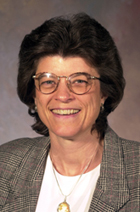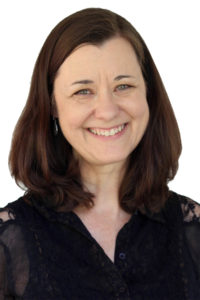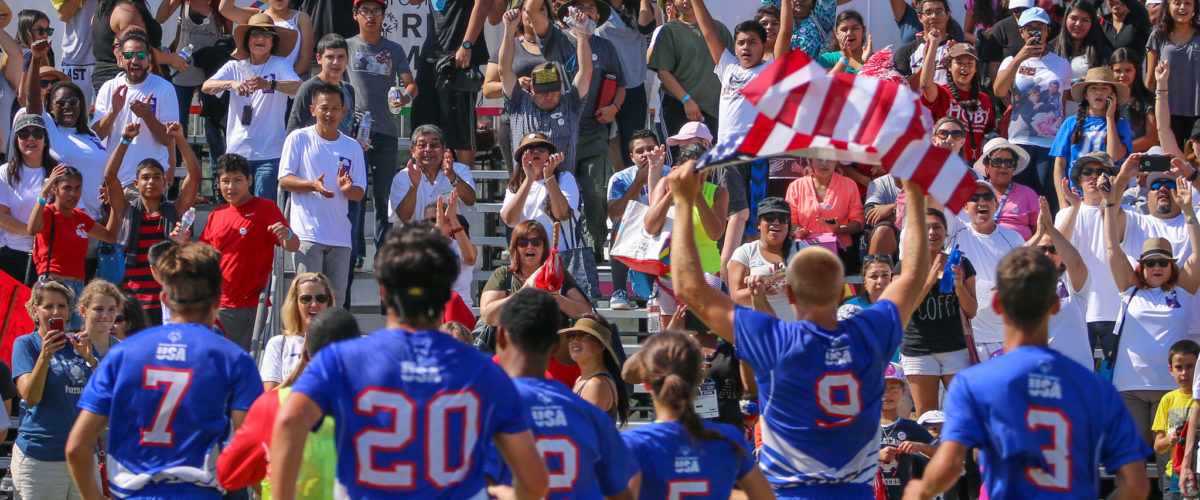Ministry can mean feeding the hungry, praying with the sick or visiting the imprisoned.
But it can also mean coaching a basketball team, organizing track-and-field events or cheering on a child-athlete.
At least it does for people of faith who have spent decades involved with Special Olympics, the iconic, global organization that hosts Olympic-style athletic competitions for those with intellectual disabilities.

Special Olympians celebrate after a swimming event (Photo/Special Olympics/Creative Commons)
July marks the 50th anniversary for the games, which today includes nearly 5 million athletes in 172 countries, according to the group’s web site.
Anniversary celebrations on local and regional levels have occurred all month and were capped by the first-ever Special Olympics Unified Cup last week in Chicago, where the movement began in 1968.
The milestone has also inspired reflection for some who say the games have yielded emotional and spiritual benefits for athletes, parents, coaches and event planners. For some, involvement has provided an outlet and confirmation for callings to ministry.
“I was called to teach and had an opportunity to minister and work with these kids and adults,” said Margaret Wooddy, a professor of human performance at Baylor University, and an expert on fitness programming for persons with disabilities.
Following that vocation led Wooddy into 35 years on the administrative and planning side of Special Olympics, an involvement that continues today.

Margaret Wooddy
She said those years fostered decades-long friendships with parents, coaches and athletes. She has seen athletes grow from children – the minimum age is 8, with no maximum age – to adulthood.
Along the way she has brought not only her professional training to bear, but also her Christian faith.
“It’s often just like it’s in a Sunday school room where I can say ‘I am praying for you and your mom and dad,’” said Wooddy, a member of Columbus Avenue Baptist Church in Waco.
She described her calling as one that enables her to understand and connect with persons with disabilities, and to be able to pass along her insights to Baylor students and to parents, children and coaches in Special Olympics.
“This is a ministry, though not necessarily in a church,” she said.
‘A way that heals the soul’
Being part of Special Olympics has other parallels to faith.
Diane Lipsett said the movement has functioned like a “sacred community” for her, her Special Olympian son and the family the past 14 years.
“It’s a program founded on deep respect for human dignity and potential,” said Lipsett, the minister of faith formation and education at Knollwood Baptist Church in Winston-Salem, North Carolina.
The competitions “bring out difficulties with aggression, nervousness and fear. It’s all of the human experience concentrated into this community that is very special,” she said.

Diane Lipsett (Photo/Knollwood Baptist Church)
That community has nurtured and guided her son, Chris Wudel, through obstacles both on and off the field of competition, Lipsett added.
Wudel, 26, has been competing in Special Olympics events since he was 12 and remains active. He said he remembers being nervous at the beginning but feels confident nowadays when he competes in basketball, soccer and bocce.
Sensing the love and support from coaches, family and fellow athletes helped him through those difficult early emotions, Wudel said.
Lipsett said it’s been fulfilling to be an eye witness to that process in her son and others.
“I have watched the development of compassion and self-control in the athletes,” she said. “I think that is spiritual development.”
It’s just another way that Special Olympics has functioned like a sacred community, Lipsett said.
“They are people in society struggling to find their place as they are being celebrated and honored in a way that heals the soul.”
‘It was important for them to try’
The healing ripples out from the athletes to impact all of those involved in the games, said Susan Huey, a retired educator and a member at Columbus Avenue Baptist Church in Waco.
Huey has been involved with Special Olympics since the early 1970s. She has coached basketball and helped in soccer and swimming. She has served on state-level committees in Texas, been an event director and helped pilot a Young Athletes Program that prepared 2- to 7-year-olds for official participation.
Her involvement dovetailed with her special education teaching focus. During her career she often directed students and their families into Special Olympics.

Susan Huey
But it was often they who were guiding her, she said.
The program provided life-long and life-changing friendships that provided spiritual perspective, she said.
And there were times in Special Olympics when Huey said she was being taught life lessons by the athletes.
She recalled an especially powerful and inspiring moment during a wheelchair race many years ago in Austin. One of the competitors was lying face-down on a gurney, using one foot to move forward.
“It took them 10 minutes to go 10 yards,” she said. “It was so difficult, but it was so important to them to try.”
She learned about gratitude, fortitude and courage from those competitors.
“That made such an impact because you can tell how hard it is for them just to move,” she said.


